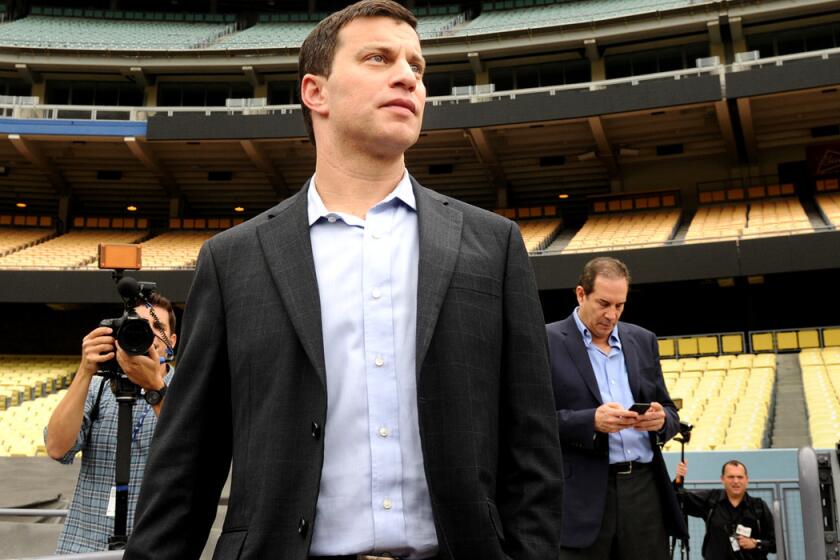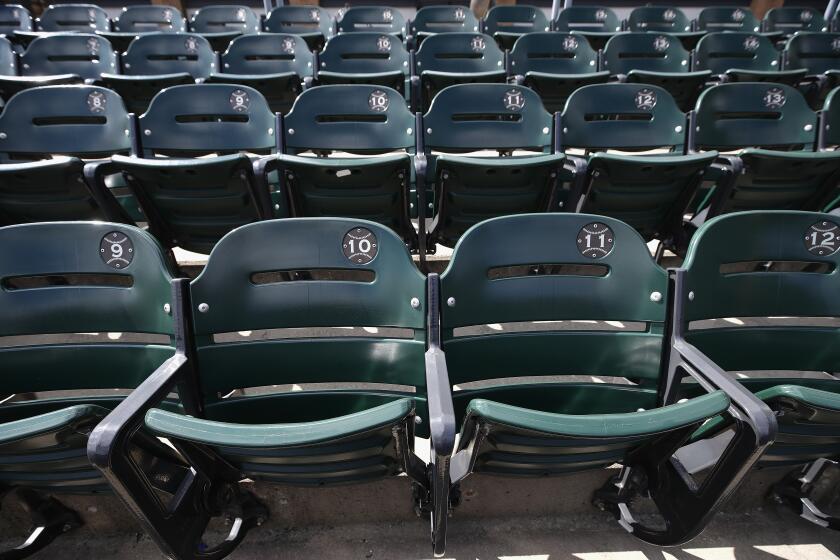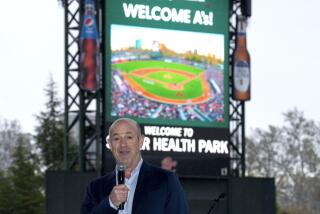Baseball in 100-degree heat? Contingency plan for playing in Arizona could be a hot mess
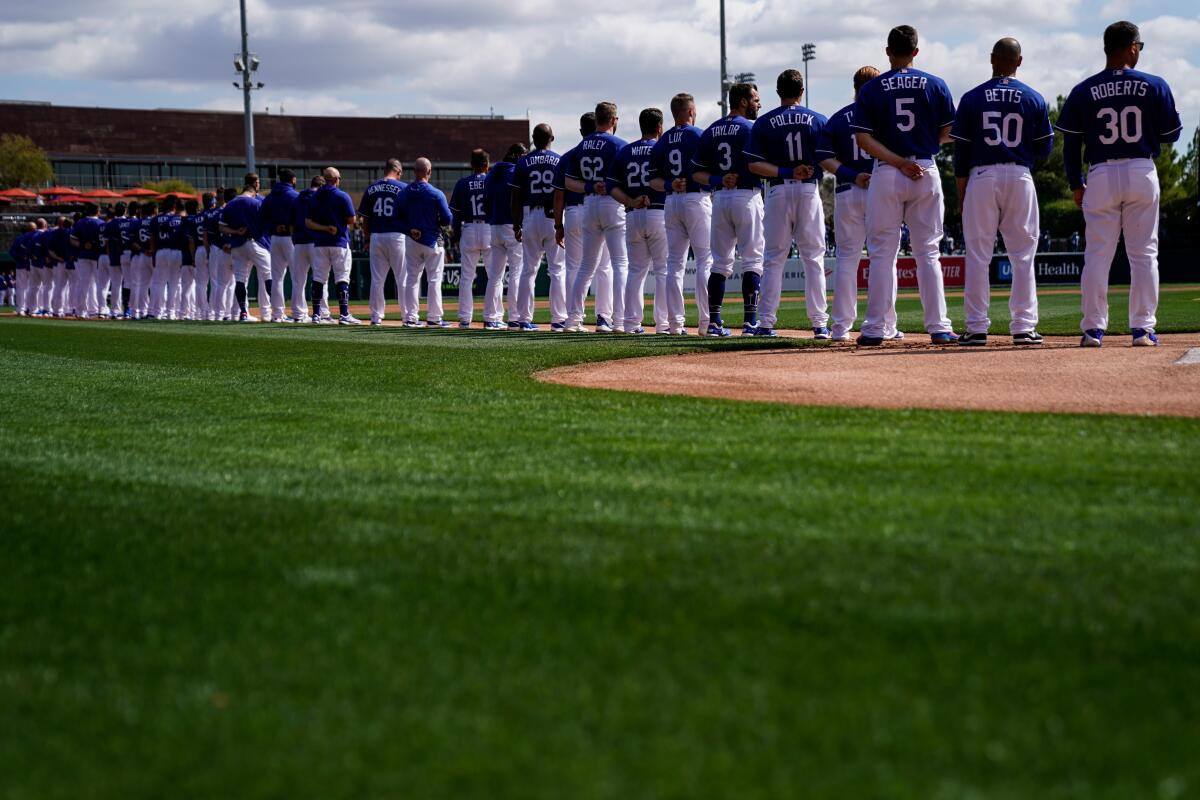
Arizona hung an “open-for-business” sign on its door this week, with pools, spas, gyms and fitness centers opening Wednesday and Gov. Doug Ducey announcing that major league teams could start playing games in empty stadiums and arenas in the state on Saturday.
Major League Baseball isn’t ready to start up its season, but if the owners and the players union can reach an agreement over salaries, teams could be allowed to begin abbreviated spring training camps in their home cities in mid-June.
California has taken a more cautious approach than Arizona to opening an economy that was shut down by the coronavirus outbreak in March. Local officials have noted that COVID-19 cases and deaths in Los Angeles haven’t slowed, and in Orange County there has been a recent uptick.
Barbara Ferrer, public health director for Los Angeles County, said recently that the region’s restrictions could remain in place well into the summer. And Gov. Gavin Newsom declined to promise that the state’s five big league teams would be permitted to play in their home stadiums, saying, “We’ll see where we will be in July.”
That could disrupt baseball’s plan to open an 82-game season in early July with teams playing in home parks, possibly forcing the Dodgers and Angels, as well the San Francisco Giants, Oakland Athletics and San Diego Padres, to move their base of operations to their spring training sites in Phoenix.
While getting the Dodgers ready for a restart, Andrew Friedman, Dave Roberts and their wives are distributing meals to hospitals to feed front-line workers.
Asked whether Arizona might be the best home-away-from-home option for the Dodgers, Andrew Friedman, the team’s president of baseball operations, said, “It feels like the easiest solution.”
“Things are changing rapidly,” he added, “and we’re hoping that the positive momentum that has come from us being able to open up the trails and beaches continues, and we all collectively do our small part in keeping us on this upward trajectory, and that things look way better a month from now than they do today.”
One potential hurdle is that some players might balk at enduring Arizona’s extreme heat. July is typically Arizona’s hottest month, with daily highs averaging 106 degrees and lows around 83. Los Angeles-area temperatures are at least 20 degrees cooler during that same period.
The Arizona Diamondbacks, who would be in the same 10-team division as the Dodgers and Angels, would play in air-conditioned Chase Field in Phoenix.
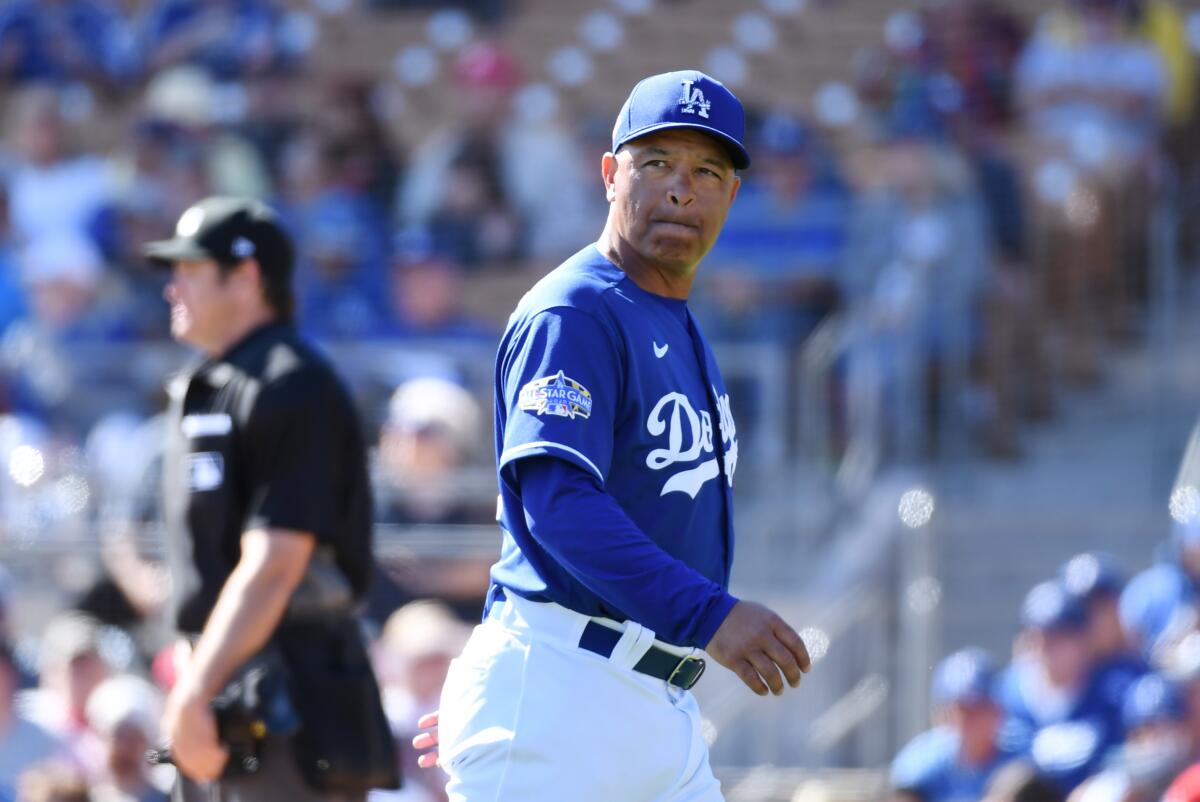
“You would have to look at the time of day when we start — obviously, it would be really early or really late to combat the temperature,” Dodgers manager Dave Roberts said. “Arizona would have an advantage using Chase Field, but it’s not just the Diamondbacks. It’s the Rockies and every other team outside California.”
The dry weather in Arizona could also be a problem for pitchers who rely on humidity to better grip the baseball and who often complain that their breaking pitches aren’t as sharp in spring training games. The risk of injury — especially muscle strains — would increase in extreme heat.
“It would definitely be unusual, but I think there’s going to be a lot of things about this season that are unusual,” Friedman said. “And as we’ve witnessed the last couple of months with our kids, or ourselves, our ability to adapt is really strong.
“I think it will just provide perspective to everyone that baseball in any form is way better than no baseball, and getting back to watching the best players in the world on the field competing will provide some shred of normalcy for everybody.”
Friedman said a “decent percentage” of the Dodgers’ 40-man roster either lives in the Phoenix area or maintained a residence there when the sport shut down in March. Though formal team workouts are not allowed by MLB, several players have been working out individually at Camelback Ranch.
With Arizona taking significant steps toward reopening this week, those restrictions could be gradually eased as clubs approach a return to play.
Major League Baseball owners have given the go-ahead on a proposal to the players’ union that could lead to the coronavirus-delayed season starting in July.
“We’re still going to follow health restrictions — test temperature, social distancing, and all that stuff for the guys who are there,” Roberts said. “But certainly, with Arizona opening up, we’re going to try to take advantage of that.”
Agent Scott Boras, who represents many of the game’s highest-paid players, including Dodgers center fielder and 2019 National League most valuable player Cody Bellinger, believes it is imperative that the five big league teams in California are allowed to play at home by July.
He said games could contribute to a sense of normalcy and well-being in a state that has seen its share of lockdown protests.
“We’re seeing a lot of people who are defiant to the governmental policies of the public health program,” Boras said. “Baseball could help bring about compliance, because people will have more of a likelihood to stay home. You’re going to have more calming, more normalcy and a lot less social unrest, because it gives fans something to do.”
Both Dodgers president and CEO Stan Kasten and Angels president John Carpino said it would require about 100 “essential” employees to stage a game in an empty stadium, a group consisting of players, coaches, medical staff, umpires, grounds crew members, team and stadium employees.
The Alameda County Public Health Department announced Tuesday that a Tesla plant that employs about 10,000 workers in Fremont will be allowed to resume making vehicles Monday. The plant is located about 21 miles south of the Oakland Coliseum, home of the A’s.
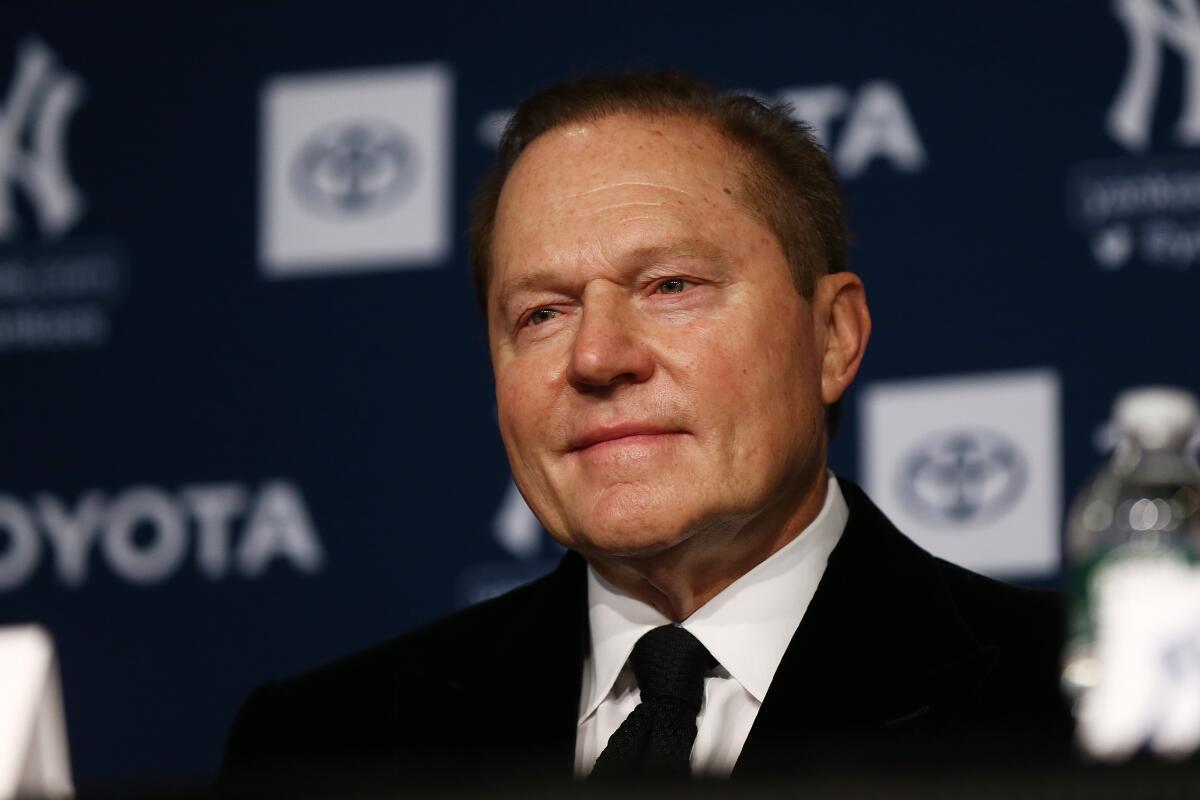
“If they’re allowing Tesla to go to work, they should allow MLB teams to play here and go to work, because frankly, in a 40,000-seat ballpark, there’s a lot more social distancing going on than there is at the Tesla plant,” Boras said.
“You can put on a baseball game in a stadium with about 125 people. You test them, isolate them, address the health and safety issues. … The ratings for fresh [live sports] content may be quadruple of what was expected. That would aid in the potential popularity of the game by taking advantage of this 120-day period.”
Staff writers Jorge Castillo and Maria Torres contributed to this report.
More to Read
Go beyond the scoreboard
Get the latest on L.A.'s teams in the daily Sports Report newsletter.
You may occasionally receive promotional content from the Los Angeles Times.

